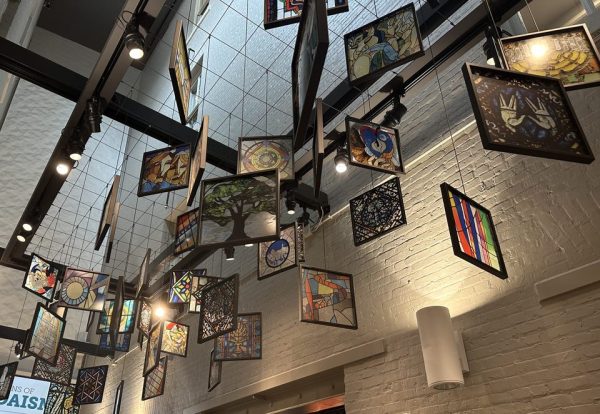
Settled in the heart of New Orleans’s Central Business District, the Museum of Southern Jewish Experience exists as a small space harboring the often forgotten, but crucial stories of Jewish immigration to the American South. While small in size, MSJE makes up for it in community, celebrating the shared values of Southern and Jewish identities.
New Orleans has always been a bustling space for rich culture and history, and its museum scene has especially flourished to meet this demand. However, with renowned spaces like the New Orleans Museum of Art and the National World War II Museum, smaller nonprofit museums can be pushed under the radar. The Museum of Southern Jewish Experience has had its fair share of recognition issues: it opened two years ago in the wake of Hurricane Ida, a time when New Orleans tourism struggled. Yet, after visiting the small museum, I can assure that MSJE’s vast collection is more than worth the trip and deserves every recognition.
The Museum of Southern Jewish Experience forms a highly unique intersectional experience for museum-goers. American Jews, while a small minority, have helped lay the groundwork for American society and the South specifically, consistently acting as prominent business owners and local leaders. When first presented, the terms “Southern” and “Jewish” do not have much in common and seemingly clash, yet MSJE illustrates that this intersection has existed for centuries, and that understanding the history of Southern Judaism is crucial to understanding the history of the South altogether.
My favorite stop on the museum’s self-guided tour is an introductory film shown that illustrates what being Southern and Jewish mean to families today. Some interviewees discuss the South’s and Judaism’s importance of food, and some talk about how both value tradition. Yet the majority identified community as the primary marker of both Southern and Jewish life. Both cultures value family and hard work, and that emphasis served Jewish immigrants moving into the American South. But Jewish Southerners have not had a solely positive experience.
The museum commits to a holistic history rather than a purely uplifting one. Jews are a small minority — just 1% — of the American South. Many were the only Jewish family in town, which contributed to isolation and misunderstanding from neighbors. While Northern Jews had higher populations in the 19th and 20th centuries and could continue to practice their traditions as a community, Southern Jews often felt like they had to assimilate into the dominant white culture. This marks a dark time in Jewish history. To fully become accepted as “Southern” during the time that many were immigrating, Southern Jews owned and sold slaves at the same rates as other American Southerners. Rather than shying away from this dark part of history, MSJE remains committed to showcasing Jewish history in the South in its entirety, further improving the museum’s sense of community through honesty.
Apart from their unique and well-designed exhibits like this one, the experience of the museum itself and its staff are not something to miss. The museum’s staff was immediately welcoming and embracing; within the first five minutes of arriving, staff were already asking me where my family was from and eager to tell the stories of their own family histories surrounding Southern Jewish life. As I progressed through the exhibits, I quickly realized the whole museum was set up in this interactive manner, with spaces for writing your thoughts or questions throughout. This was an extremely special experience and made the museum that much more engaging, truly demonstrating MSJE’s mission of encouraging individual reflection on identity while equally embracing community.
Open six days a week, the Museum of Southern Jewish Experience is one of the most unique experiences in New Orleans for anyone from the avid museum-goer to the casual tourist. While artfully showcasing southern Jewish history, MSJE goes above and beyond and implements both cultures’ values of hospitality and hard work throughout, showing their commitment to identity. After my visit, I can conclude that the Museum of Southern Jewish Experience is more than a museum: it’s a community.


